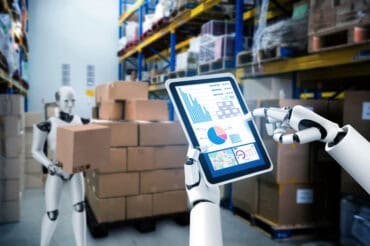
The initial AI ‘gold rush’ will give way to a more measured approach as organizations gain a better understanding of AI’s implementation challenges.
AI has been a hot topic in the tech community for several years, but we have reached a point where it is becoming increasingly mainstream. While in previous years, we primarily saw early adopters embrace it, 2024 was really the year that more people—and, as a result, more businesses—began to integrate AI into their day-to-day lives.
This leads us to 2025. What will be in store for AI in the coming year? It’s hard to narrow down, but one thing is certain: the initial AI ‘gold rush’ will give way to a more measured approach as organizations gain a better understanding of AI’s implementation challenges. With the technology’s widespread adoption, many companies are discovering that a successful AI deployment is not as simple or straightforward as they thought.
Where else does it go from here? These five focus areas will shape the way that organizations approach AI implementation in 2025 and determine the level of success they see as a result.
1: Successful AI implementation will depend on sound data and a solid foundation
Companies are beginning to recognize that to effectively leverage AI solutions, they must first get their house in order. This means maintaining clean data, developing in-house expertise to understand how best to use that data, and creating frameworks to point it in the right direction. This is why companies that have historically invested in proper data infrastructure are now able to multiply the value of their AI initiatives, while those that have not are falling further behind.
Additionally, there will be a reckoning for those quick solutions that promise rapid AI integration. Many have not lived up to that promise, particularly those third-party solutions that are simply stacked on top of existing AI models like ChatGPT. Successful AI efforts require thorough preparation with correctly structured data. Both an art and a science, companies are realizing that implementation is far more complex than simply pointing AI at existing datasets.
2: AI will play the role of collaborative coach
Initially, we focused on using AI for full automation, with tools like Copilot driving this shift. However, companies are now recognizing the need to maintain the human touch in customer interactions.
For instance, instead of fully automating content creation, businesses now want AI to act as a coach by providing feedback to ensure that all content aligns with the brand voice and meets customer expectations. Consumers are craving authentic experiences, and companies that over-index on automation risk losing customer loyalty and repeat business.
In 2025, the focus will be on striking a balance—using AI to enhance human decision-making and creativity rather than replacing it entirely to build deeper, more authentic customer connections.
See also: Apple Advances Multimodal AI with New Training Methods
3: Multimodal AI is the next frontier
The future of AI will be shaped by the rise of multimodal capabilities, where AI systems go beyond text to incorporate rich sources like audio, video, and images. While text-based data has traditionally driven large language models, it is video and audio content from platforms like YouTube that will ultimately become central sources of input.
As AI moves toward a more holistic approach, multimodal models that can process and interpret diverse data types will become critical. Alongside this, there will be a heightened focus on privacy, ethics, and governance. As consumers become more aware of how their data is accessed and utilized, companies will face pressure to adopt transparent practices that ensure trust and security.
Indeed, major players like Google and OpenAI are advancing their functionalities to address these concerns, particularly around data protection and compliance. This represents a shift from the “move fast and break things” philosophy that characterized earlier tech innovation toward a more measured, security-first approach to AI development and deployment.
4: Some niche AI solutions will go away
The AI space will see consolidation in the coming year, particularly in the area of solutions specialized for marketing and sales. This is being driven by industry giants, which are now actively acquiring smaller, function-specific AI companies.
The reality is that companies focusing solely on narrow applications like marketing-specific AI solutions will find it increasingly difficult to succeed as independents. At the same time, established marketing solutions providers will find opportunities to add value by integrating innovative AI technologies directly into their platforms.
This trend toward fewer, more powerful solution providers is driven by the escalating costs of development and significant scale advantages. At the same time, companies are moving beyond generic large language models and increasingly demanding solutions tailored to their unique business needs. This trend reflects a maturing market where deep, company-specific AI tuning becomes more valuable than broad, one-size-fits-all approaches. The result is fewer providers with more customizable AI solutions that are better aligned with organizational needs.
5: AI will bring workforce upgrading, not downsizing
AI will continue to augment human work rather than replace it, particularly in areas like marketing, support, and sales. These tools are quickly evolving from basic chatbots into sophisticated partners that can increasingly handle complex tasks. This evolution is now fundamentally changing the way that companies think about growing their teams.
Instead of simply adding more people, organizations are investing in their existing talent by helping them master the skills needed to work alongside AI assistants. It’s less about downsizing and more about upgrading: transforming how work gets done through human-AI collaboration, leveraging both human subject matter expertise and powerful AI tools. However, it will still be up to humans to learn how to take advantage of the new tools, and employees who master these skills will have an advantage.





























